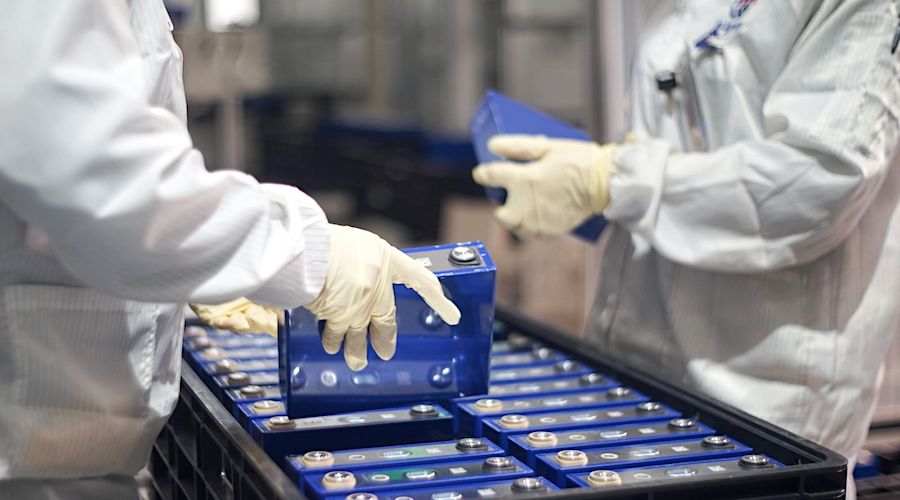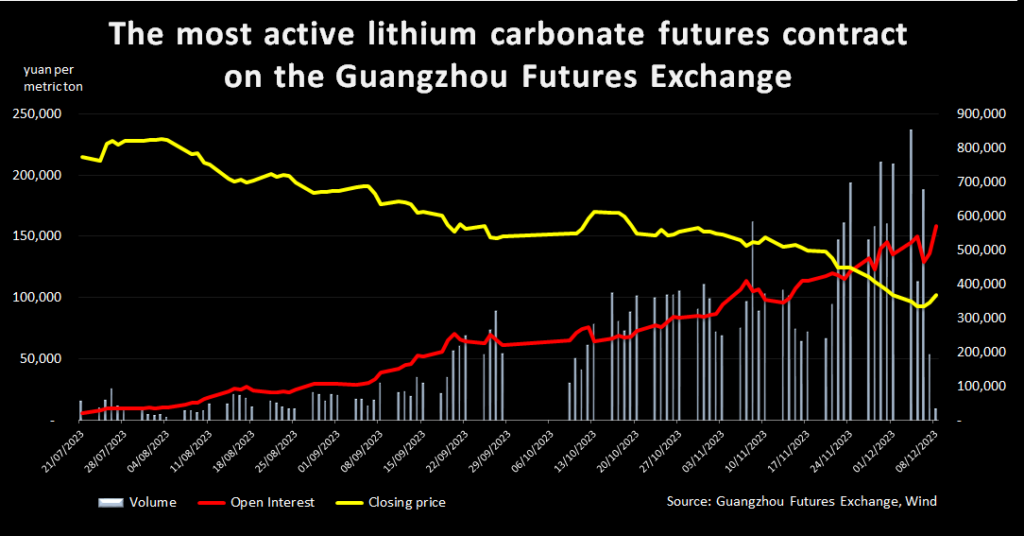China exchange adds lithium warehouses to allay fears of short squeeze

China’s Guangzhou Futures Exchange (GFEX) has added more warehouses for lithium carbonate, it said on Monday, a move analysts saw as an effort to alleviate fears of a shortage of cargoes available for January delivery.
China is the world’s largest consumer and producer of lithium carbonate and the GFEX contract was launched on July 21, after the exchange was set up in 2021 to focus on new energy materials.

In a statement, the exchange said it added three warehouses for delivery of the material used for electric vehicle batteries and raised the minimum guaranteed storage capacity at 10 other sites to 5,000 metric tons, from 2,000 tons earlier.
The exchange did not respond to a request for comment.
“The move…is to calm the irrationality in the futures market,” Zhang Weixin, an analyst at China Futures, said of the new warehouses.
“The increase of warehouses showed that there will be abundant volume for physical delivery.”
The exchange’s most active lithium carbonate contract surged 7% on Friday, fuelled by concerns about a shortage of material that could be delivered in January, two analysts based in China said.
The most-active contract switched from January to July on Dec. 7.
The bourse said later on Friday it would strengthen market supervision and investigate violations of lithium carbonate trading after prices surged. It had already increased trading fees and introduced trading limits to stabilise the market earlier in the week.
“Even so, GFEX lithium carbonate futures remain volatile… We are seeing intensified activity among financial speculators,” said Citi analysts in a Thursday report, noting that the open interest for the January contract was well above the spot inventory level.
Despite the recent jump in futures prices, the outlook for Chinese lithium carbonate spot prices remained bearish as supply growth could outpace a rise in demand.
Analysts say spot prices, which are down more than 80% since the record high hit in November last year, could fall by more than 30% next year from their current level.
The GFEX contract has also reversed course to close down 4.82% to 96,800 yuan a ton on Monday, 55% below the closing price on the debut day.
(By Amy Lv, Dominique Patton, Mai Nguyen and Melanie Burton; Editing by Clarence Fernandez and Sharon Singleton)
{{ commodity.name }}
{{ post.title }}
{{ post.date }}




Comments